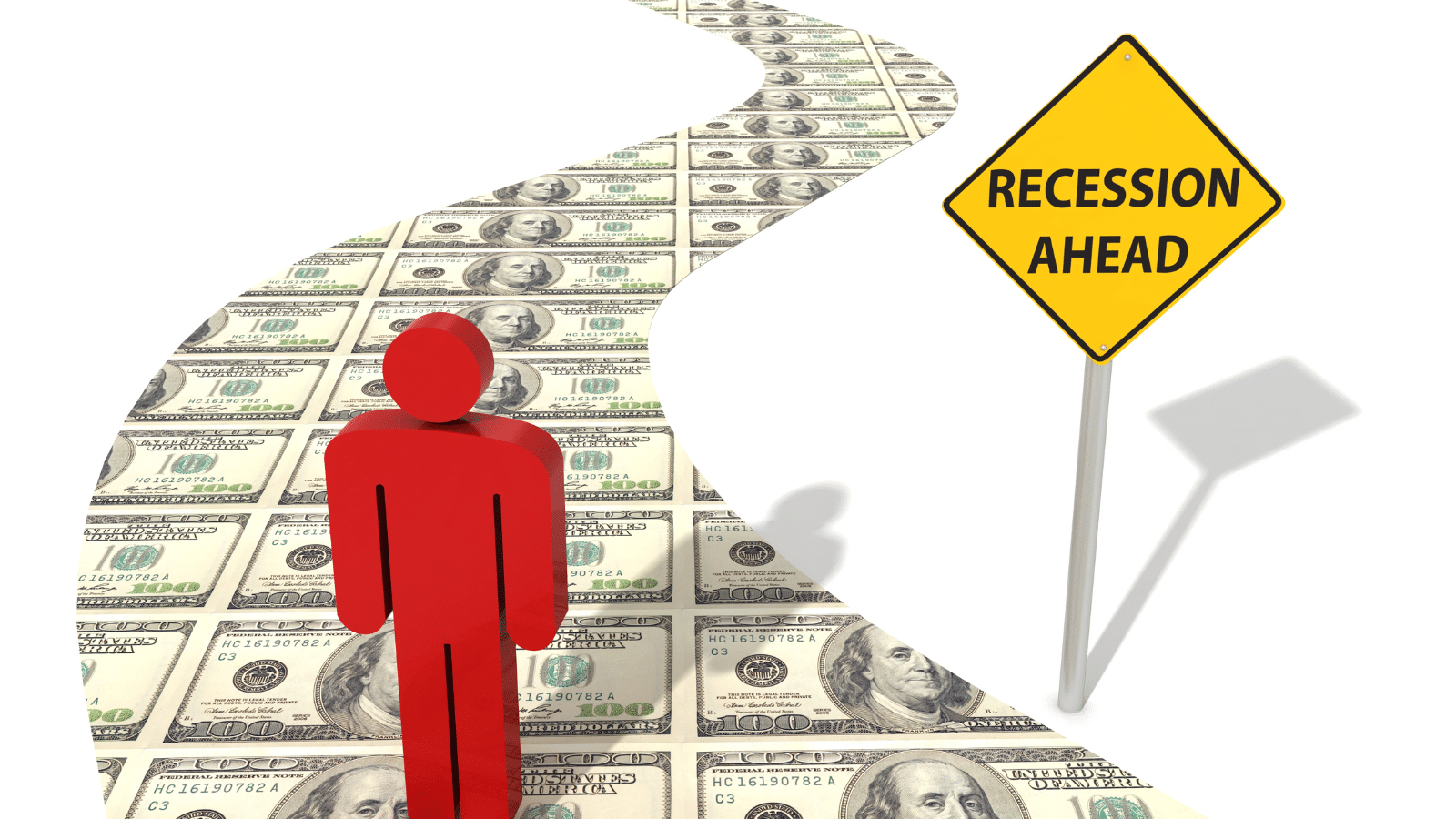10 Ways to Drive Profitability During a Recession
There’s no doubt that the economy is a hot topic these days. Businesses are always looking for ways to stay afloat and drive profitability, even during tough times. A recession can be a scary time for business owners, but with the right planning and strategies in place, you can thrive during it. We will discuss how businesses can protect their assets, save money, and even scale during a recession.
What is a recession?
A recession is defined as a period of economic decline creating two consecutive quarters of negative gross domestic product (GDP). This can be further measured and broken down by job losses and retail sales. A recession typically has negative effects on businesses, as it can lead to decreased demand for their products or services.
What causes a recession?
Many factors can cause a recession, including:
– high interest rates
– high inflation
– government spending cuts
– natural disasters
Are we in a recession?
Forbes notes that according to the definition above, the United States has already entered into a recession.
However, there is no one definitive answer to this question right now. While some economists believe that we may be in a recession, others believe that the economy has not yet reached that point. Either way, it’s important to be cautious of warning signs that may point to a recession happening now.
What are the effects of a recession on businesses?
A recession can lead to decreased demand for businesses’ products or services, which can result in lower sales, profits, and stock prices. Additionally, it can lead to layoffs, decreased job growth, and increased debt levels.
How can companies recession-proof their business?
The best way to weather a recession starts with your strategic plan. When businesses are in panic mode, they often make rash decisions that can end up hurting them financially. By planning ahead, you’ll be able to stay calm and make smart decisions during tough times. There are several things that businesses can do to combat the effects of a recession.
1. Focus your core customer: Leveraging brand loyalty is key here. It’s the ideal time to identify who is your core customer, what are their needs, and what you can do to exceed their expectations and maintain their loyalty.
During a recession is not the time to experiment with markets – rather, it’s the time to hone in on what you know and deliver directly to your most loyal existing market. Avoiding experimentation minimizes risk during a time of caution for business leaders. And if your customers are happy, they’re more likely to stick with you during tough times.
Make sure you’re regularly communicating with them and getting feedback so you can address any concerns they may have.
2. Reduce expenses: One way to offset lower sales is by reducing your expenses. Take a close look at your budget and find areas where you can cut back, even if it’s just temporarily. This may include things like reducing marketing spend, making cuts to employee salaries or benefits, or even cutting costs in a more robust way.
Take the world’s largest restaurant chain, for example. During Covid, McDonald’s set the bar for crisis-proofing while reducing expenses.
Many businesses tried to use COVID as a time to experiment by adopting new products, pricing strategy, marketing to new segments, etc. McDonald’s took a different approach by doing the opposite and shrinking down its menu to its core. Healthier options and extras were no longer available. The fast-food chain knew people would still want their favorite comfort foods even during times of uncertainty, and by offering a limited menu, they were able to strategically move faster and cut costs.
3. Protect your assets: In a recession, it’s more important than ever to protect your company’s assets. This includes both physical assets like inventory and equipment, as well as intangible assets like your brand and reputation. Make sure you have adequate insurance coverage in place to protect against any potential losses, and consider ways to cut costs without compromising the quality of your products or services.
If necessary, take steps to protect your intellectual property by trademarking or patenting any unique processes or products. This will give you a leg up on the competition and help you weather the recession.
4. Build up cash reserves: It’s always a good idea to have cash reserves on hand, but it’s especially important during a recession. This way, if sales do drop, you have the funds to cover your expenses and keep your business afloat until things pick back up.
In the event that your company needs to downsize, emergency reserves can help you cover severance pay and other associated costs.
5. If necessary, trim the under-performers: It’s a tough decision for CEOs, but when cuts are necessary, you must consider the option of cutting employees. If someone isn’t meeting expectations, it may be best to let them go before a recession hits and you’re forced to make larger-scale cuts.
6. Get creative with marketing: Marketing budgets are often one of the first places businesses cut when a recession hits. While you don’t need to necessarily increase your marketing spend, thinking outside of the box could be key to optimizing organic reach.
For example, recession-driven webinars and free content downloads have become drivers for marketing qualified leads for all types of businesses. During times of uncertainty, customers will look to informative sources for help. As a business, if you can be that source of information, you’re more likely to see an uptick in leads, even if your budget is tight.
7. Focus on cash flow: In a recession, cash is king. A few ways you can monitor cash flow are by:
– Reviewing your receivables and collections process to make sure you’re getting paid promptly
– Renegotiating payment terms with vendors and partners
– Cutting non-essential costs
– Reviewing your inventory levels and changing production speed if necessary
As the Great Game of Business notes, you can even utilize your team to forecast cash flow and help make strategic decisions about where to allocate your resources.
8. Stay flexible: In a recession, things can change quickly. While it’s crucial to stay focused on what you know, it’s also important to stay nimble and be able to adapt as the situation evolves. This includes being able to make cuts where needed, having a plan to make up for lost cash flow, and staying up to date with evolving business and marketing trends.
9. Use recessionary times as an opportunity: A recession can be a tough time for businesses, but it can also be an opportunity to gain market share, improve your operations, and position yourself for future growth. Use this time to focus on areas of your business that you can improve, and take advantage of the fact that your competitors may be struggling.
10. Leverage technologies: New technologies and SaaS tools can help businesses recession-proof their operations by reducing costs, increasing efficiency, and improving the quality of their products and services.
By using software to create and execute a strategic plan, you can ensure that all aspects of your business are accounted for, from marketing and sales to operations and finance. This will help you make quick, informed decisions during a recession.
Certain software can further help recession-proof also help you move the needle toward success and keep tabs on your most critical company metrics through goal tracking. Other recession-proofing benefits of new technologies include remote working capabilities, which can help reduce your overhead costs, and data analytics tools, which can help you make informed decisions about where to allocate your resources. Look for ways to incorporate data-driven software into your business, and make sure you have the staff in place who are able to use them effectively.
Ready, Set, Recession-Proof
Recession-proofing your business is about more than just surviving a downturn – it’s about positioning your company to thrive when the economy rebounds. Remaining focused on profitability and revenue generation is key, and by taking strategic steps now, you can put your business in a position to thrive in the storm.




